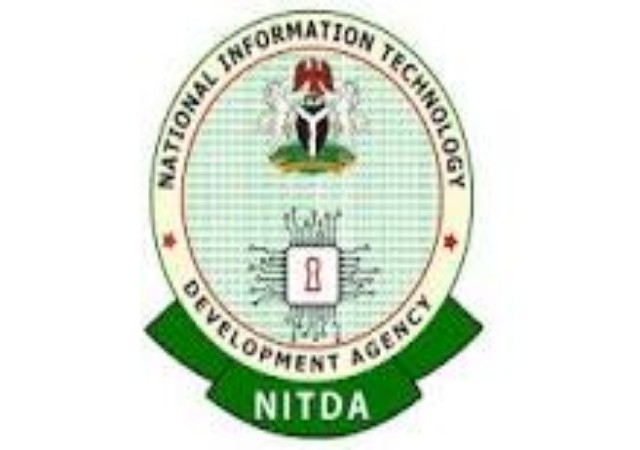By Isiaku Ahmed
Diversifying Nigeria’s economy which has historically relied majorly on revenue from oil has always been a mantra of successive governments, especially since the beginning of the 4th Republic in 1999. But none appears to be more committed to this mission than the government of President Muhammadu Buhari. This is not just because it is one administration that is severely hit by a revenue shortfall as a result of the drastic slump in global oil price, but it is because it is one that has amply demonstrated the will to truly diversify.
But it has to be pointed out that in the face of the growing digitization of the global economy, there’s need to respond appropriately to economic diversification in a manner that will yield better dividends for the country. One man that has demonstrated the right acumen for engaging this challenge is Dr. Isa Ali Pantami, Minister of Communication and Digital Economy.
The ever-resourceful patriot that he is, Pantami found a worthy partner in Mallam Kashifu Inuwa Abdullahi, the equally enterprising Director-General of National Information Technology Development Agency (NITDA), and together they have sought to take the issue of advancing digital economy beyond just another buzz term.
Among the many initiatives of advancing digital economy that the Ministry of Communication and Digital Economy under Dr Pantami is championing is a novel initiative to upgrade the agricultural sector with the launch of the National Adopted Village for Smart Agriculture (NAVSA) programme.

NAVSA is both innovative and revolutionary. It specifically designed to boost agricultural practice with the use of technology. Under this programme, farmers across the 774 local governments in the country would be selected in an orderly fashion and would be supported and equipped with the necessary skills that would enable them exhibit their farm produce in the digital world market. The scheme, which targets graduates who are between the ages of 20 and 35 who already have the knowledge of participation in Agricultural technology project, is embodied in the main policy of the National Digital Economy and Strategy for a Digital Nigeria launched by President Buhari.
It is designed to take small scale farmers to commercial level using a performance-based approach. The idea was conceived by the Ministry of Communication and Digital Economy and NITDA to carry farmers along in the digital economy journey led by Pantami.
With agriculture still employing 70% 0f the workforce, NAVSA’s goal is to build digital capabilities and innovations across agriculture value chains aimed at creating more jobs and improving the income and wealth of everyone involved in the chain. From NITDA’s perspective, beneficiary farmers are expected to build sustainable and digital business models that should create not less than six million jobs in the next 10 years.
For a start, NAVSA kicked off in Jigawa State with 130 farmers drawn from 27 local governments of the State. They have undergone training and were provided with smart devices, internet connectivity, seed fund of N100,000 each and certified seed. For a country blessed with a large fertile landmass, nothing can be more important than coming up with innovative ideas that will promote smart agriculture as a means of diversifying the economy.
There is no doubt that the best way to improve Nigeria’s agricultural output is through the adoption of new technologies as is the case with most advanced economies around the world. Consequently, it is important for farmers to join hands with Pantami in his efforts to digitize Nigeria, a lofty objective that accords with President Buhari’s promise to take 100 million Nigerians out of poverty within the shortest possible time. Clearly, this cannot be achieved without technology, which is a key tool for creating jobs and alleviating poverty.
There can never be enough commendation for both the leaderships of the Ministry of Communication and Digital Economy, and NITDA for this inventive scheme which has significantly met President Buhari’s expectation as expressed in his Democracy Day speech which highlighted the role of digital economy in the country’s development agenda.
NAVSA is already primed to enhance digital agriculture strategy, while supporting federal government policy by taking advantage of the growing youth population which is more than 50% of the estimated 200 million population. Consider also the fact that just about 40% of the estimated 82 million hectares of arable land is being utilized, and there are about 126 million active internet users, 72 million broadband subscription and 37.8% broadband penetration with 70% target by 2025.
But the ultimate goal of NAVSA is to make Nigeria a world leader in digital farming. With a digital platform that enables key players in agriculture access important information that will help them scale up their productivity, reduce the cost of production and facilitate access to local and international markets, this noble cannot be far-fetched.
Little wonder the governor of Jigawa State, Mohammed Abubakar Badaru, was ecstatic as the project kicked off in his domain. Surely, in not too distant time, he should be celebrating much more than just rice millionaires in his domain, thanks to NAVSA. And kudos to the genius of Pantami and the NITDA boss.
But like all laudable initiatives, success takes more than government’s effort and commitment. It is hoped that beneficiaries of this initiative will work assiduously in tandem with the government’s plans and together attain the lofty dreams of the NAVSA initiative. At the end it is envisaged as a win-win for all.
Ahmed writes from Kaduna.

